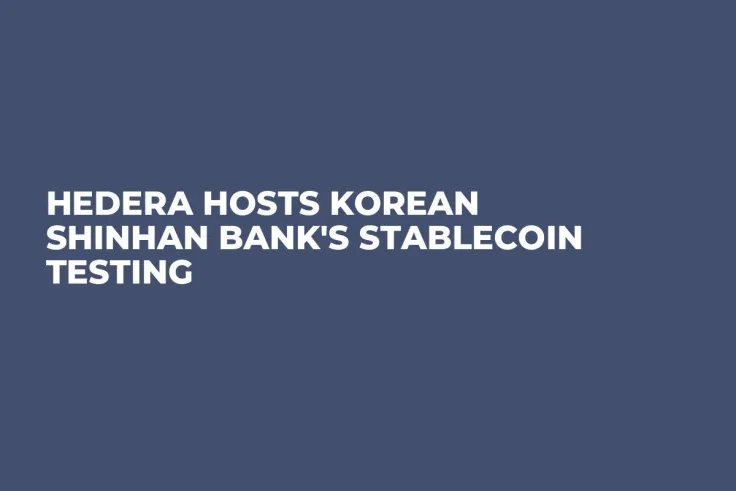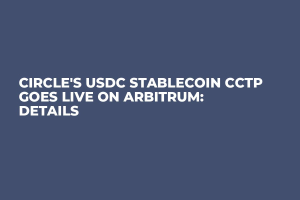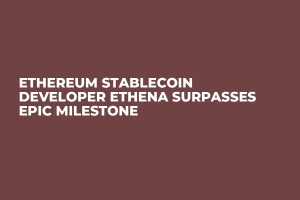
Disclaimer: The opinions expressed by our writers are their own and do not represent the views of U.Today. The financial and market information provided on U.Today is intended for informational purposes only. U.Today is not liable for any financial losses incurred while trading cryptocurrencies. Conduct your own research by contacting financial experts before making any investment decisions. We believe that all content is accurate as of the date of publication, but certain offers mentioned may no longer be available.
Known for its great innovations, the Hedera blockchain is becoming a platform with a diversified and multifaceted protocol for different applications. In one of its latest ventures, the protocol has been tapped by a top South Korean financial institution Shinhan Bank as the primary base for the testing phase of its stablecoin innovation.
The Shinhan stablecoin testing has a lot of goals, all encapsulated in the desire to rectify some of the core pangs associated with cross-border payments. These pangs include delayed settlement times, high costs of transactions and the absence of avenues to track the payment.
The goal of the pilot test was achieved as Shinhan Bank said it was able to issue tokens that are denominated in local currencies and permit users to send and receive funds at lower fees than current alternatives.
"Stablecoins offer a low-cost, fast, and reliable way to transfer value across borders," said Byunghee Kim, who leads blockchain at Shinhan Bank, adding that "the successful completion marks an important step forward in our efforts to make cross-border payments faster, cheaper, and more accessible to people around the world."
The Shinhan Bank and Hedera pilot were EVM compatible, a feature that is billed to permit third-party stablecoin issuers to participate in the future.
Growing stablecoin interest
There is a growing clamor for stablecoins in different countries and organizations around the world. With their defined peg against the United States Dollar or any fiat current whatsoever, they generally offer a more flexible means to conduct transactions.
Because of their unique design and capabilities, many industry leaders and regulators are mulling over creating a robust stablecoin framework to guide industry participants. The MiCA guidelines as approved by the European Union also have a dedicated framework for stablecoin issuers in the country.
The implosion of TerraUSD (UST), now rebranded USTC, served as a major clarion call to regulators to regulate the stablecoin ecosystem appropriately. Many regions, including Japan and the EU, have taken up this call.



 Dan Burgin
Dan Burgin Vladislav Sopov
Vladislav Sopov